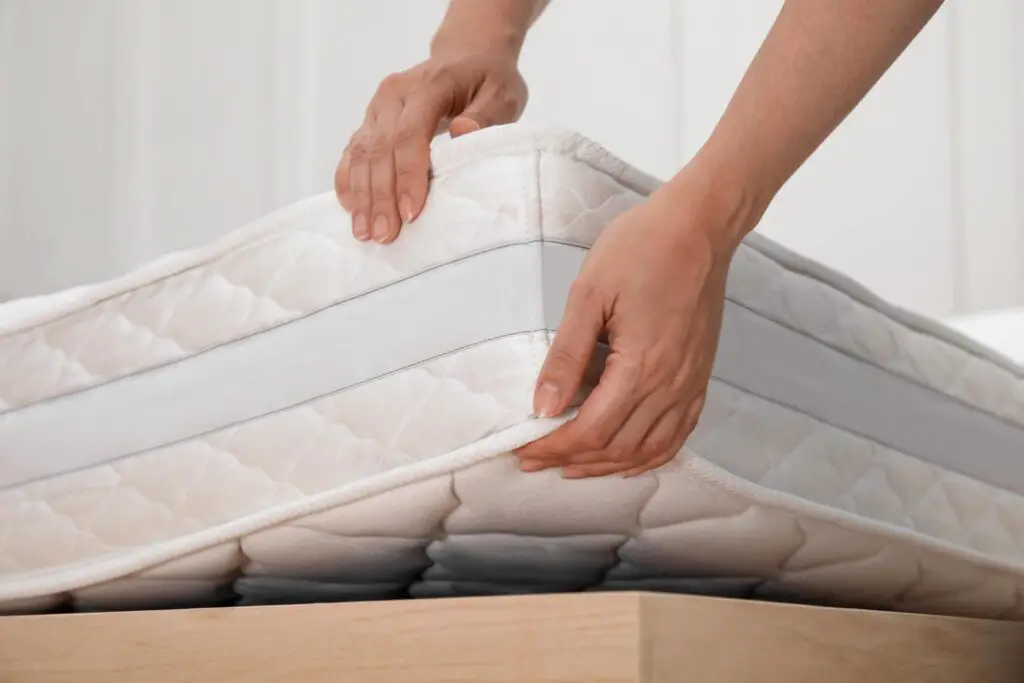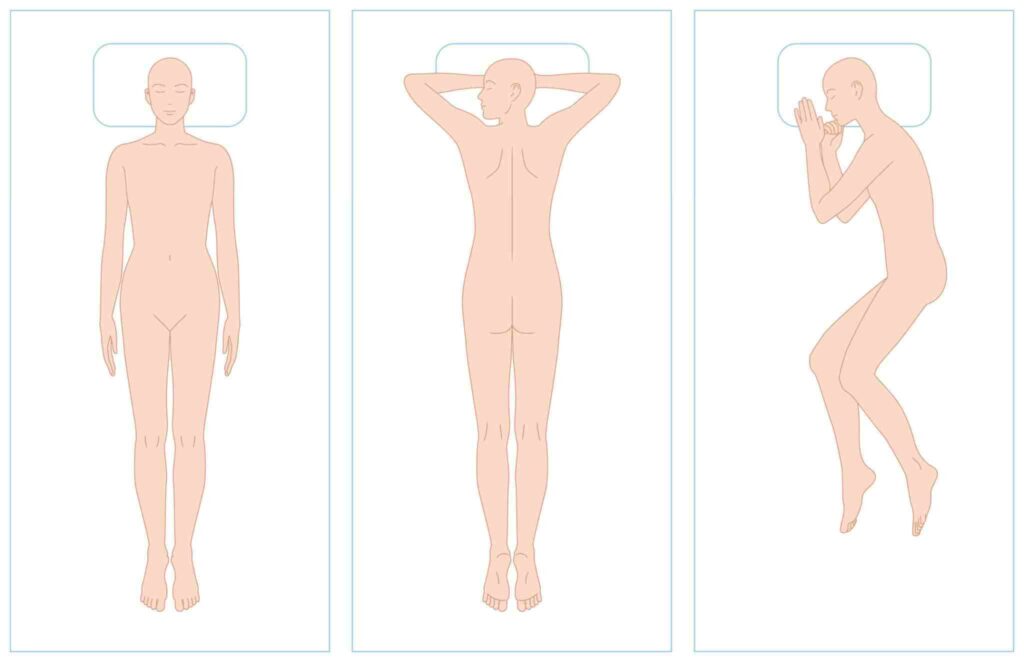Shopping for a mattress can be an overwhelming experience. With countless options available in the market, each boasting different features and promises of a good night’s sleep, it’s easy to feel lost in a sea of choices. However, before you dive headfirst into purchasing the first mattress that catches your eye, there are several crucial factors you should consider to ensure you’re making the right investment in your sleep quality and overall well-being.
In this comprehensive guide, we’ll delve into nine essential things you need to know before buying a mattress. From understanding your specific sleep needs to deciphering mattress materials and navigating through various firmness levels, we’ll equip you with the knowledge necessary to make an informed decision. Additionally, we’ll explore the significance of proper support, the importance of trial periods, and how to decipher warranties effectively.

By the end of this article, you’ll be equipped with the expertise to navigate the mattress market confidently, ensuring that your next mattress purchase not only aligns with your comfort preferences but also promotes a restful and rejuvenating night’s sleep. Let’s embark on this journey to uncover the secrets behind selecting the perfect mattress tailored to your unique sleep needs.
Table of Contents
1. Understanding Your Sleep Needs
Before embarking on your mattress-buying journey, it’s crucial to assess your unique sleep needs. Consider factors such as your preferred sleeping position, any existing health conditions, and whether you share the bed with a partner or pet.

Understanding your sleep needs will guide you in selecting a mattress that provides the right level of support and comfort for a restful night’s sleep.
2. Setting a Budget
Mattress prices can vary widely, from budget-friendly options to luxury models with premium features. Determine your budget before shopping to narrow down your options and prevent overspending. While a higher price tag often correlates with better quality and durability, there are also affordable mattresses available that offer excellent comfort and support.
3. Choosing the Right Size
Selecting the correct mattress size is essential for a comfortable sleeping experience. Consider factors such as the size of your bedroom, the number of people sharing the bed, and your sleeping habits. Common mattress sizes include twin, full, queen, and king, each offering different dimensions to accommodate various sleeping arrangements.
4. Testing for Comfort
Comfort is subjective, so it’s essential to test out different mattresses to find the one that feels best for you. Spend at least 10-15 minutes lying on each mattress in the store to assess its firmness, support, and overall comfort level. Don’t be afraid to ask the salesperson for recommendations based on your preferences and sleep needs.

5. Understanding Firmness Levels
Mattresses come in various firmness levels, ranging from plush to extra firm. Understanding these different levels will help you choose a mattress that aligns with your comfort preferences and sleeping habits. Generally, firmer mattresses provide more support, making them ideal for back and stomach sleepers, while softer mattresses offer more cushioning for side sleepers.
6. Researching Materials and Construction
There are several types of mattresses available, each with its unique materials and construction. Common mattress types include innerspring, memory foam, latex, hybrid, and airbeds, each offering different benefits and drawbacks. Researching the characteristics of each type will help you determine which one is best suited to your needs and preferences.
7. Evaluating Warranty and Return Policies
Before making a purchase, be sure to review the mattress warranty and return policies. A comprehensive warranty can provide peace of mind by protecting you against defects and premature wear and tear. Additionally, check if the retailer offers a sleep trial period, allowing you to test the mattress at home and return it if it doesn’t meet your expectations.
8. Considering Sleep Health Features
Modern mattresses often come equipped with advanced features designed to promote better sleep and overall well-being. Look for features such as temperature regulation, motion isolation, and pressure relief to create a more comfortable sleep environment. These features can help you achieve deeper, more restorative sleep each night.
9. Seeking Expert Advice

Finally, don’t hesitate to seek advice from sleep experts or mattress professionals when choosing a mattress. They can provide valuable insights and recommendations based on your specific needs and preferences, helping you make an informed decision. Whether you’re dealing with chronic pain, sleep disorders, or simply seeking to improve your sleep quality, consulting with knowledgeable professionals can help you find the perfect mattress for your needs.
“After considering these nine essential factors for buying a mattress, don’t forget about the importance of supportive pillows to enhance your sleep experience further. Memory foam pillows, known for their ability to contour to your head and neck, can complement your new mattress perfectly. If you’re curious about how memory foam pillows can elevate your sleep quality, check out our comprehensive guide to Best Memory Foam Pillows. With the right combination of a supportive mattress and comfortable pillows, you’ll be well on your way to achieving a restful and rejuvenating night’s sleep.”
What is the best time to replace a Mattress After Use?

The best time to replace a mattress depends on several factors, including its age, condition, and your personal comfort preferences. As a general guideline, most mattresses are designed to last between seven to ten years. However, there are signs that indicate it may be time to replace your mattress sooner:
1. Visible Wear and Tear: If you notice visible signs of wear and tear such as sagging, lumps, or indentations, it may be time to replace your mattress. These issues can affect the level of support and comfort provided by the mattress, leading to discomfort and disrupted sleep.
2. Increased Discomfort or Pain: If you wake up feeling stiff, sore, or experiencing discomfort, it could be a sign that your mattress is no longer providing adequate support. As mattresses age, they may lose their ability to contour to your body’s natural curves, leading to increased pressure points and discomfort.
3. Allergies or Respiratory Issues: Over time, mattresses can accumulate dust mites, allergens, and other particles that can exacerbate allergies or respiratory issues. If you notice an increase in allergy symptoms or difficulty breathing while sleeping, it may be time to replace your mattress.
4. Changes in Sleep Quality: If you find yourself tossing and turning throughout the night or waking up frequently, it could be a sign that your mattress is no longer providing the comfort and support you need for restful sleep. Investing in a new mattress can help improve your sleep quality and overall well-being.
Ultimately, the decision to replace your mattress should be based on your individual needs and preferences. If you’re unsure whether it’s time to replace your mattress, consider consulting with a sleep expert or mattress professional for guidance.
How can I know which level of firmness is best for me?
Determining the ideal level of firmness for your mattress depends on several factors, including your preferred sleeping position, body weight, and personal comfort preferences. Here are some guidelines to help you find the right firmness level:
1. Side Sleepers: If you primarily sleep on your side, you’ll likely benefit from a mattress with medium to medium-soft firmness. This level of firmness helps cushion your shoulders and hips, allowing for better spinal alignment and pressure relief.
2. Back Sleepers: Back sleepers generally require a medium to medium-firm mattress that provides adequate support for the spine while still contouring to the body’s natural curves. This level of firmness helps maintain proper alignment and prevents sagging in the midsection.
3. Stomach Sleepers: Stomach sleepers tend to benefit from a firmer mattress that prevents the hips from sinking too deeply into the mattress, which can lead to lower back pain over time. A medium-firm to firm mattress provides the necessary support and helps keep the spine aligned.
4. Combination Sleepers: If you frequently change positions throughout the night, a medium-firm mattress is typically the most versatile option. This level of firmness offers a balance of support and cushioning, allowing you to transition comfortably between sleeping positions.
5. Body Weight: Your body weight can also influence the ideal firmness level for your mattress. Heavier individuals may prefer a firmer mattress that provides extra support and prevents excessive sinking, while lighter individuals may find a softer mattress more comfortable.
Ultimately, the best way to determine the right level of firmness for you is to test out different mattresses and see how they feel. Spending time lying on mattresses in-store can give you a better sense of their firmness and how they conform to your body. Additionally, many mattress retailers offer sleep trials that allow you to test the mattress at home for an extended period, giving you the opportunity to ensure it meets your comfort needs.
Conclusion
“In conclusion, purchasing a mattress is a significant investment in your sleep quality and overall well-being. By understanding your specific sleep needs, setting a budget, and testing for comfort, you can make an informed decision that ensures a restful night’s sleep for years to come. Remember to consider factors such as mattress size, firmness level, and materials, and don’t hesitate to seek expert advice if needed. With the right mattress tailored to your preferences, you’ll enjoy better sleep and wake up feeling refreshed and rejuvenated each morning. So, armed with the knowledge from this guide, embark on your mattress-buying journey with confidence, and take the first step toward a healthier and happier sleep experience.”







